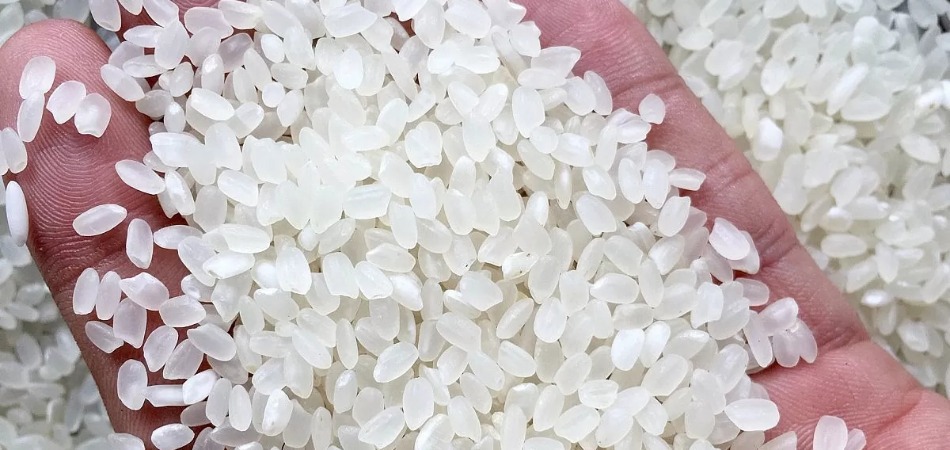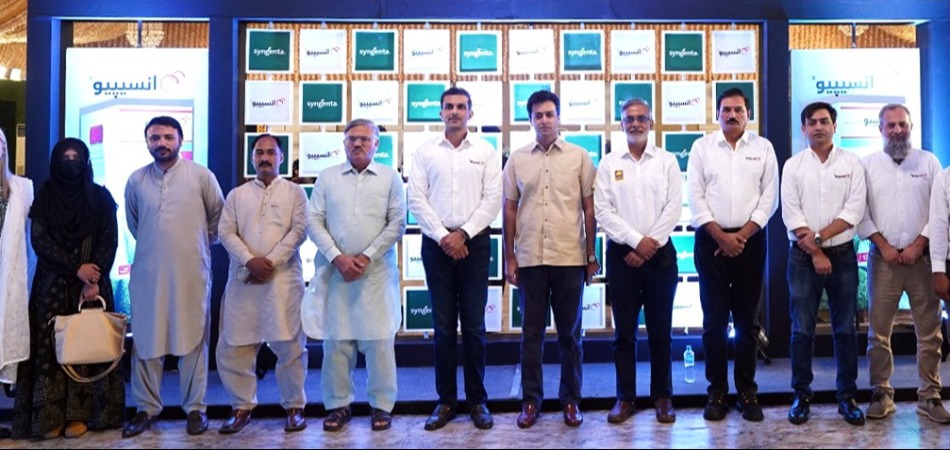Rice research center opened at ICCBS-UoK

MG News | July 26, 2017 at 05:48 PM GMT+05:00
Vice Chancellor University of Karachi Prof. Dr. Muhammad Ajmal Khan on Wednesday inaugurated the Sino-Pakistan Hybrid Rice Research Center (SPHRRC) at the International Center for Chemical and Biological Sciences (ICCBS), University of Karachi.
The Sino-Pakistan center was setup at a cost of Rs.150 million in the premises of the country's leading research establishment of ICCBS. The research center has state-of-the-art research facilities, including NMR Spectroscopes, Plant Tissue Culture Technology, genomics, and green houses etc.
The curtain opening ceremony was well attended by ICCBS Patron-in-Chief and former Chairman Higher Education Commission Pakistan Prof. Dr. Atta-ur-Rahman, His Excellency Wang Yu, Consul General of China in Karachi, Director General China National Rice Research Institute (CNRRI) of Hangzhou - China, Prof. Dr. Cheng Shihua, and Director ICCBS Prof. Dr. Muhammad Iqbal Choudhary.
It is pertinent to mention here that Sindh Governor Mohammad Zubair who had consented to be the chief guest in the opening ceremony could not attend the event due to an emergency meeting.
Speaking at the inaugural ceremony of SPHRRC, held at the Prof. Salimuzzaman Siddiqui Auditorium, ICCBS, the University Chief said, “Pakistan needs to make a massive investment in science and technology for a long period to entertain the desired progress. Substantial development of any country or nation is associated with the true commitment of its leadership and enormous investment.”
“China is an excellent example, which made an unbelievable progress in a limited time. True promise and vision of Chinese leadership, and huge investment got China on the top among the developed countries,” Dr. Khan said.
Prof. Dr. Atta-ur-Rahman, in his speech, said, “Pakistan has 100 million young people (below the age of 20) in her total population, which needs to be educated and trained. He pointed out that natural resources have lost their importance and been replaced by quality human resources that contribute towards high-tech industrial development.”
Talking about the drastic cut in the higher education budget, he said, “The Finance Ministry has slashed the development budget of all universities of Pakistan by more than 60 percent. The government has left the universities of Pakistan in a shocking state of disarray by reducing the budget.”
He observed that, “For any country there were four pillars of progress, including high quality education, science and technology, innovation and entrepreneurship, and vision and strategy of leadership.”
The Chinese Consul General said, “Pakistan is famous for its high quality rice, while China is a great importer of high quality Pakistani rice.” Talking about the hybrid rice center, he said, “ICCBS owned highly qualified scholars and state-of-the-art research equipment. The opening of this research center is a very significant event, which shows the deep roots of Pak-China bilateral relations.”
Prof. Iqbal Choudhary said, “Today's event is another landmark in the long and exemplary relationship between the two neighboring countries. The SPHRRC will work on the development of novel varieties of rice by using state of the art hybrid and genetic technologies.”
He said, “Pakistan is among the largest producers of rice in the world. However, despite its tremendous potential, the export of Pakistani rice has decreased over the years due to low yields, and high cost of production, he added. The biggest challenge is to increase the production of high quality rice for the local and foreign market; through this new center, the ICCBS and CNRRI intend to contribute in this field of strategic importance.”
Prof. Cheng Shihua said, “Pakistan is an important strategic partner of China, the two countries kept a traditional, long-term friendship in the past 50 years.” He pointed out that, “Food security is a common issue for both countries. Pakistan's local rice varieties possess exceptional grain size, taste and aroma; through collaboration with advanced technology of China more new rice varieties will also be developed.” Dean Faculty of Sciences Prof. Dr. Tasneem Adam Ali also attended the ceremony.
Later on, Prof. Dr. Muhammad Ajmal Khan and Prof. Dr. Atta-ur-Rahman jointly launched 52nd annual report of the International Service for the Acquisition of Agri-biotech Applications (ISAAA) showcasing the 110 fold increase in adoption rate of biotech crops globally in just 21 years of commercialization – growing from 1.7 million hectares in 1996 to 185.1 million hectares in 2016.
In the launch, Prof. Iqbal Choudhary informed the participants, according to this report, Pakistan has become the seventh largest biotech country in the world.
Related News
| Name | Price/Vol | %Chg/NChg |
|---|---|---|
| KSE100 | 135,939.87 307.74M |
-0.41% -562.67 |
| ALLSHR | 84,600.38 877.08M |
-0.56% -479.52 |
| KSE30 | 41,373.68 101.15M |
-0.43% -178.94 |
| KMI30 | 191,069.98 82.45M |
-1.17% -2260.79 |
| KMIALLSHR | 55,738.07 422.01M |
-1.03% -577.24 |
| BKTi | 38,489.75 45.79M |
-0.02% -8.33 |
| OGTi | 27,788.15 6.87M |
-1.24% -350.24 |
| Symbol | Bid/Ask | High/Low |
|---|
| Name | Last | High/Low | Chg/%Chg |
|---|---|---|---|
| BITCOIN FUTURES | 116,880.00 | 120,695.00 116,090.00 |
-3355.00 -2.79% |
| BRENT CRUDE | 68.79 | 69.41 68.60 |
-0.42 -0.61% |
| RICHARDS BAY COAL MONTHLY | 96.50 | 96.50 96.50 |
0.50 0.52% |
| ROTTERDAM COAL MONTHLY | 104.50 | 104.50 104.25 |
-2.05 -1.92% |
| USD RBD PALM OLEIN | 998.50 | 998.50 998.50 |
0.00 0.00% |
| CRUDE OIL - WTI | 66.65 | 67.13 66.22 |
-0.33 -0.49% |
| SUGAR #11 WORLD | 16.56 | 16.61 16.25 |
0.26 1.60% |
Chart of the Day
Latest News
Top 5 things to watch in this week
Pakistan Stock Movers
| Name | Last | Chg/%Chg |
|---|
| Name | Last | Chg/%Chg |
|---|



